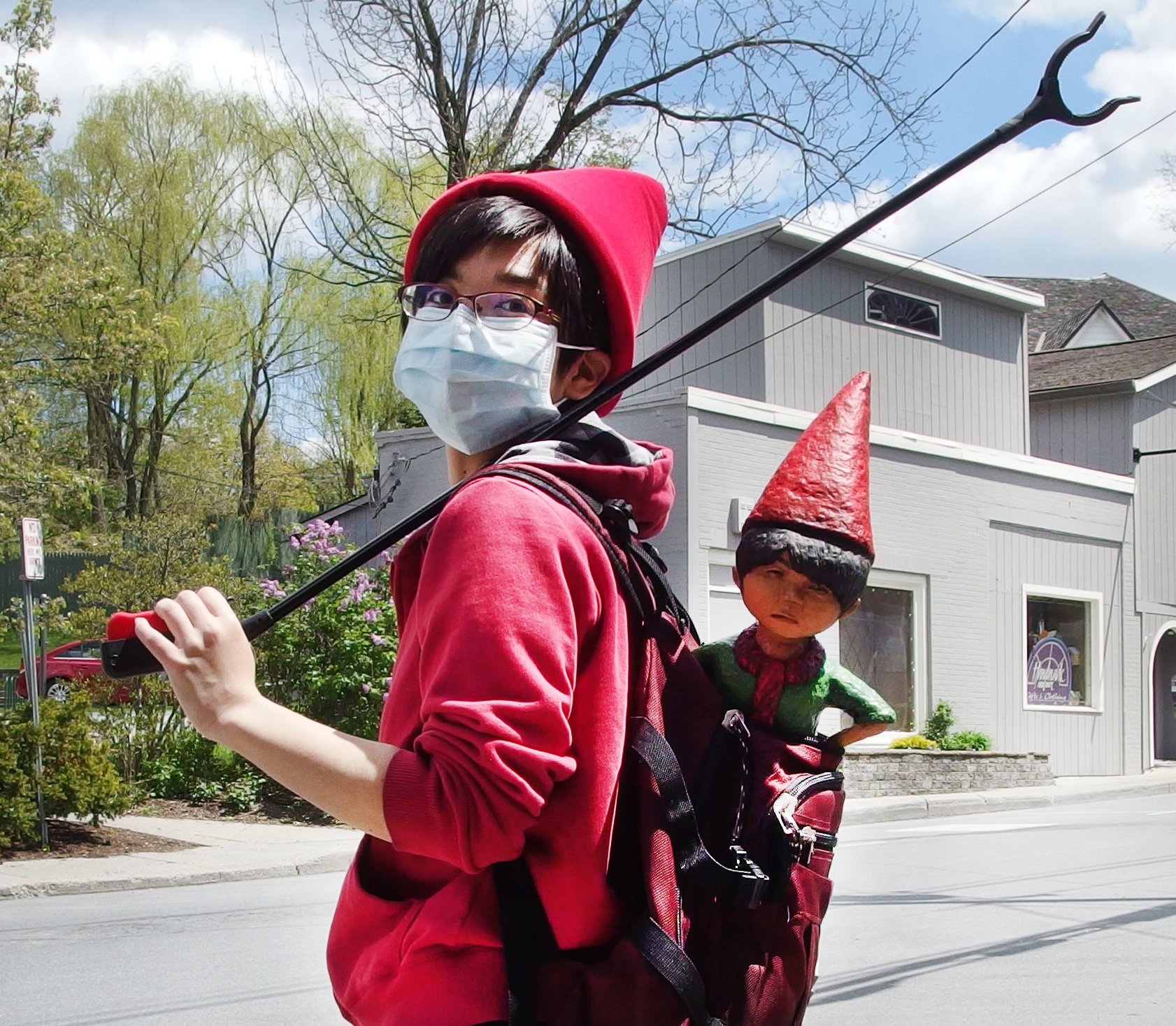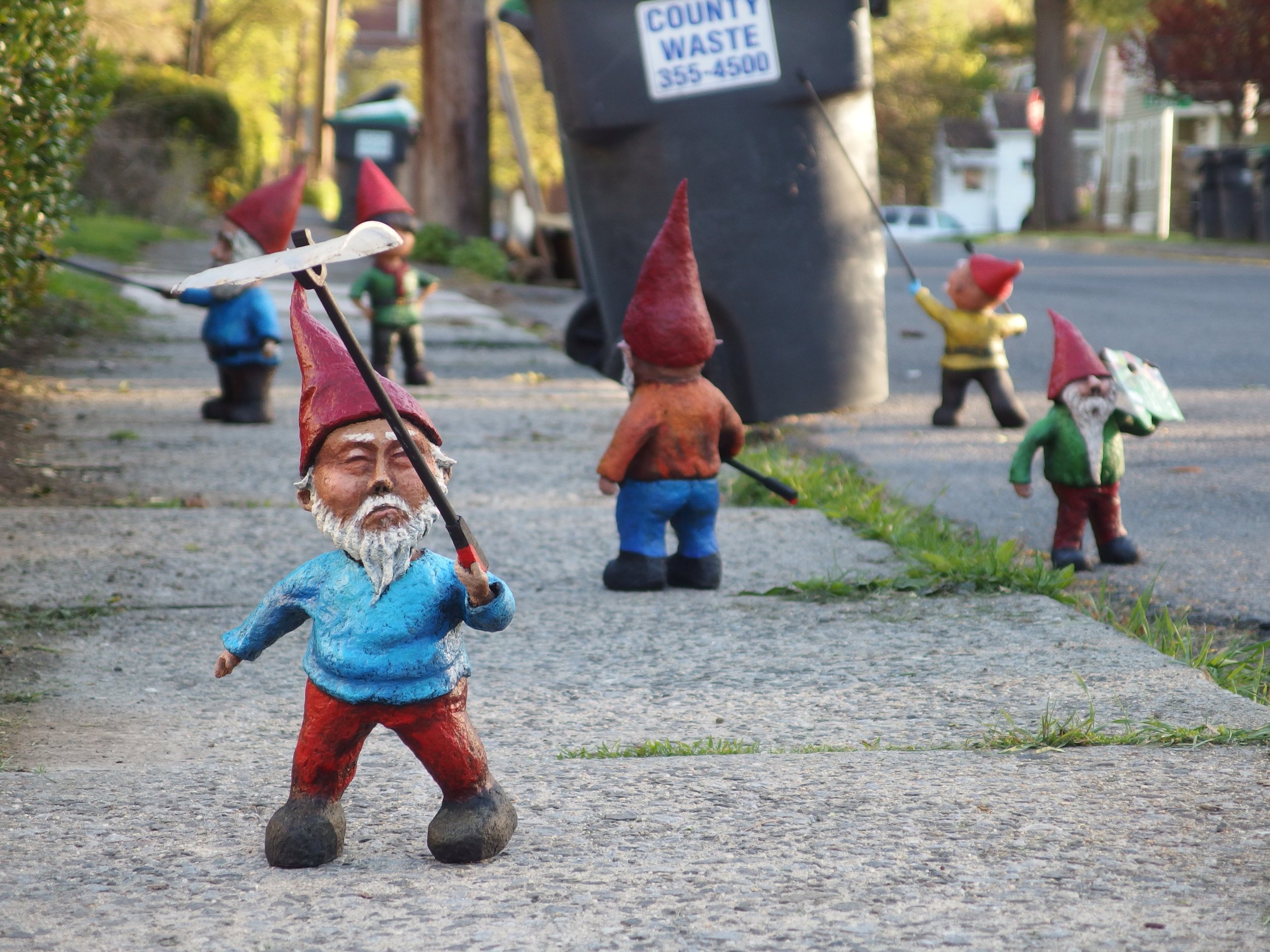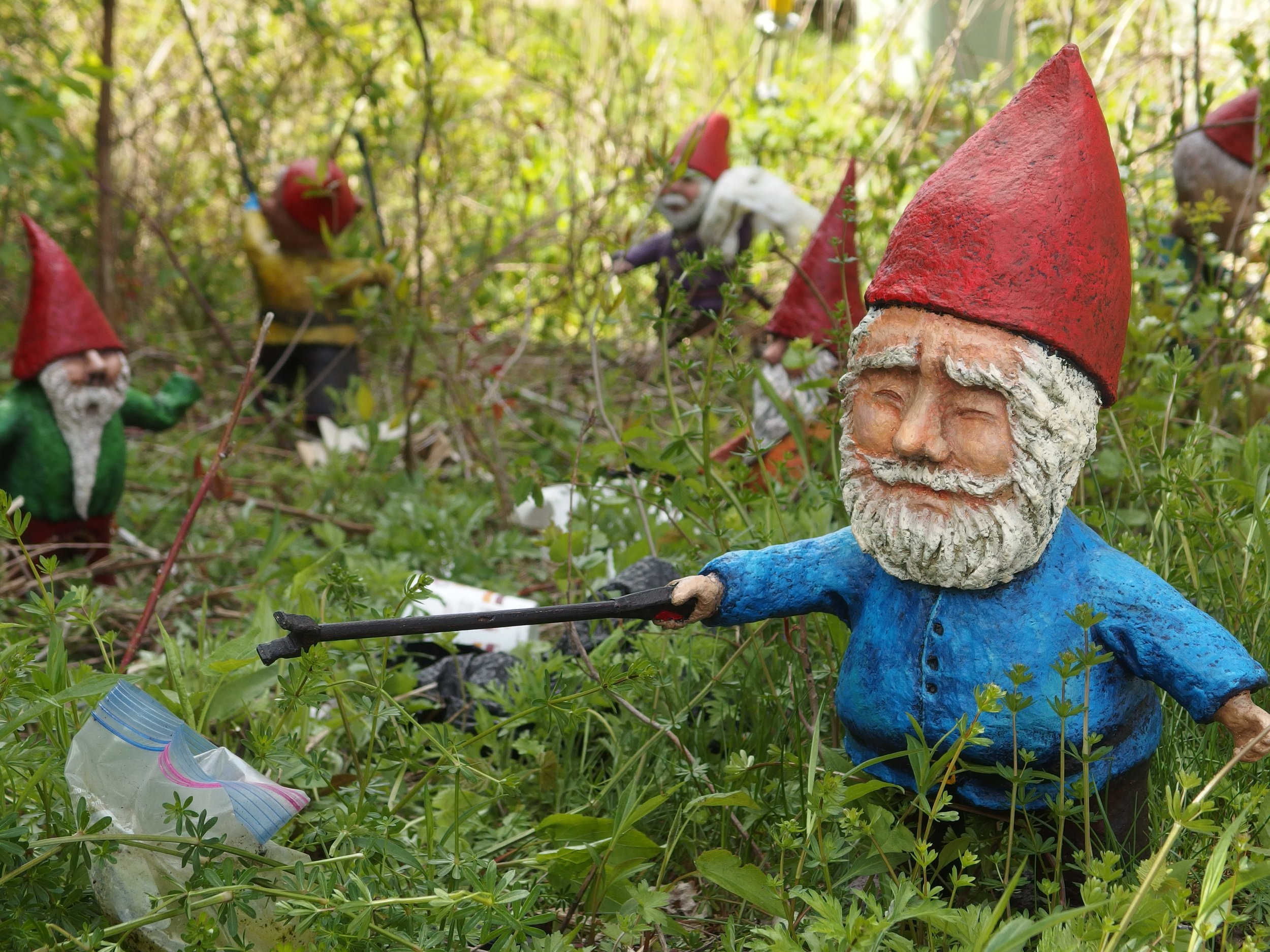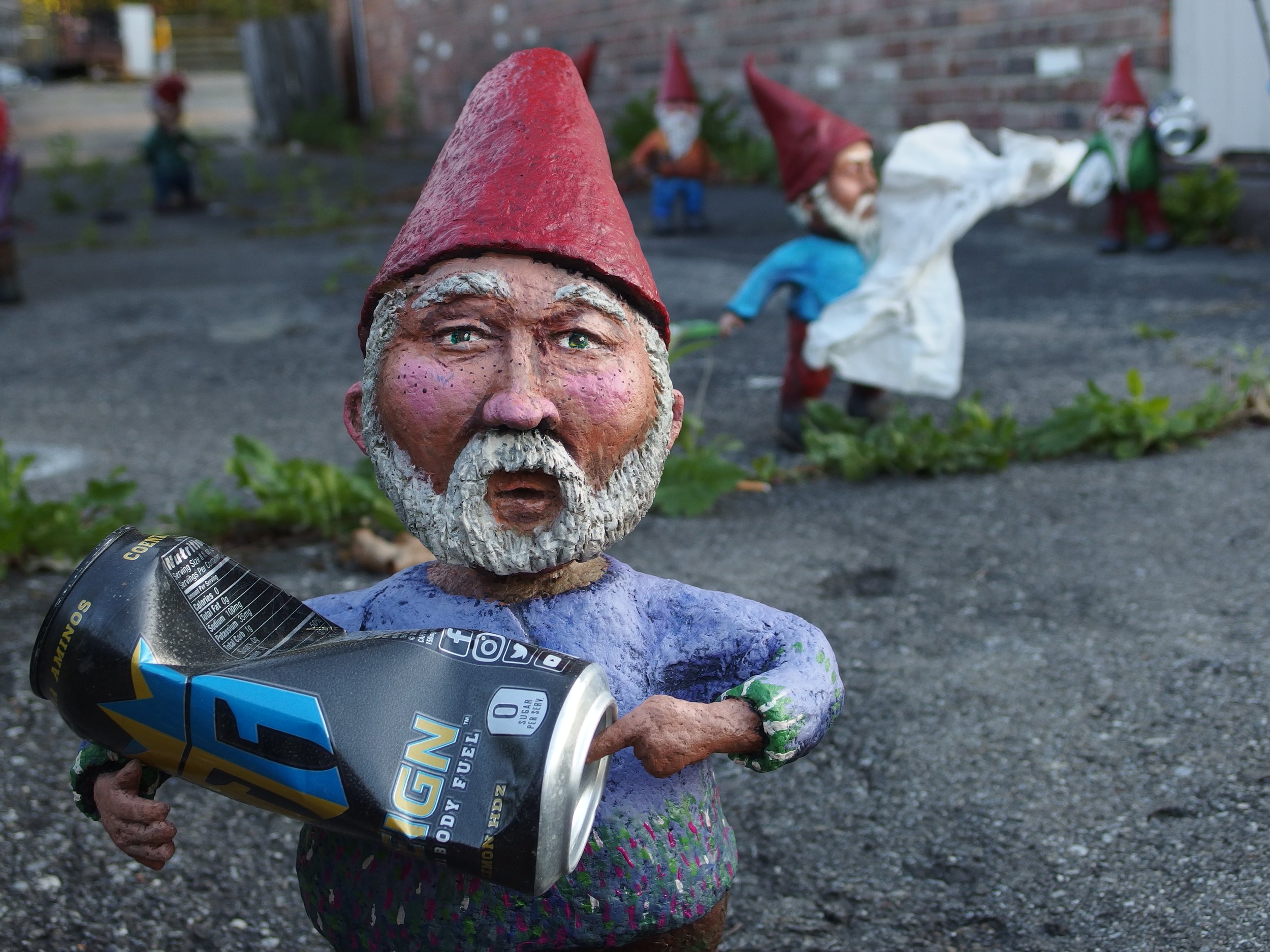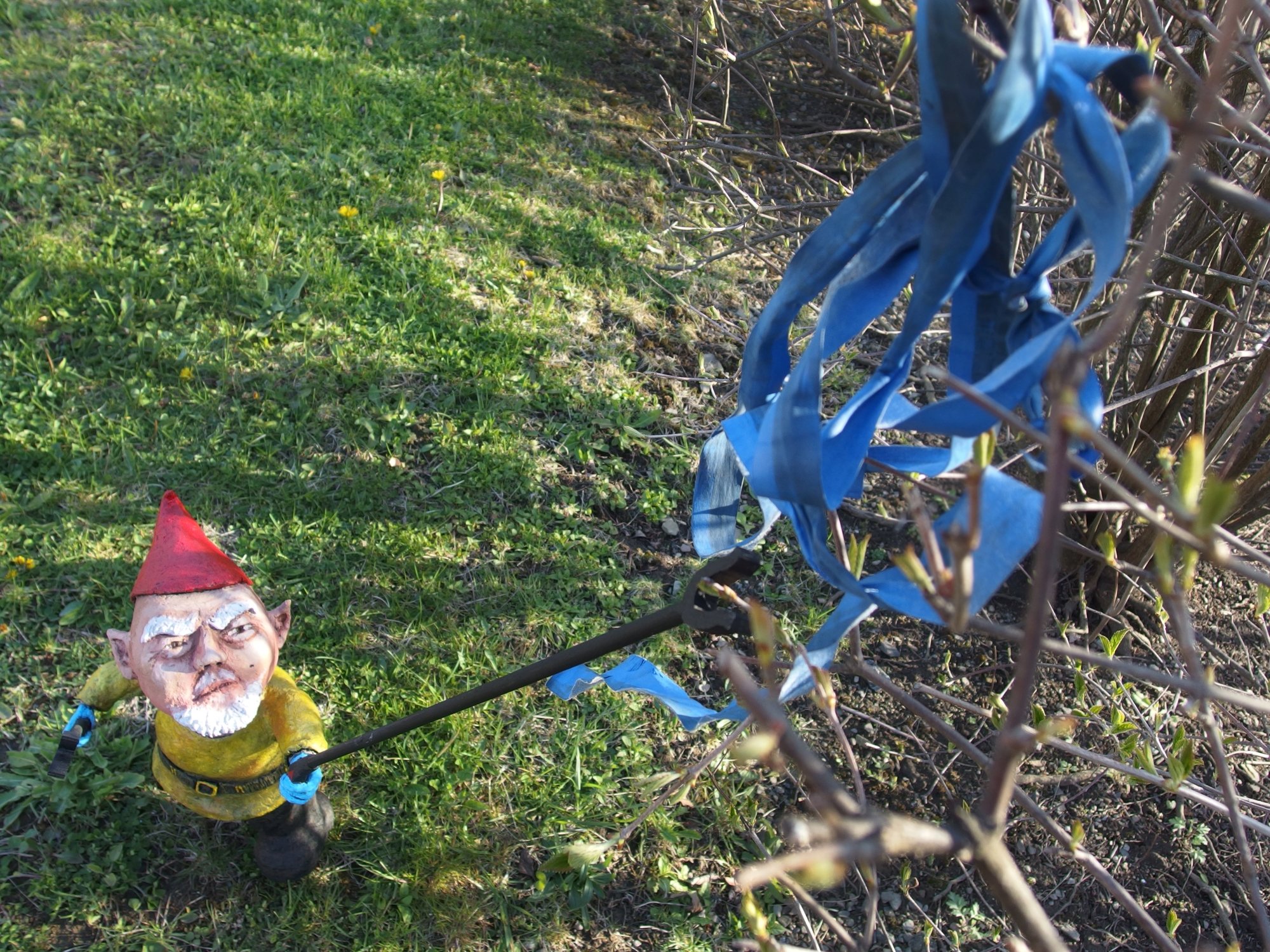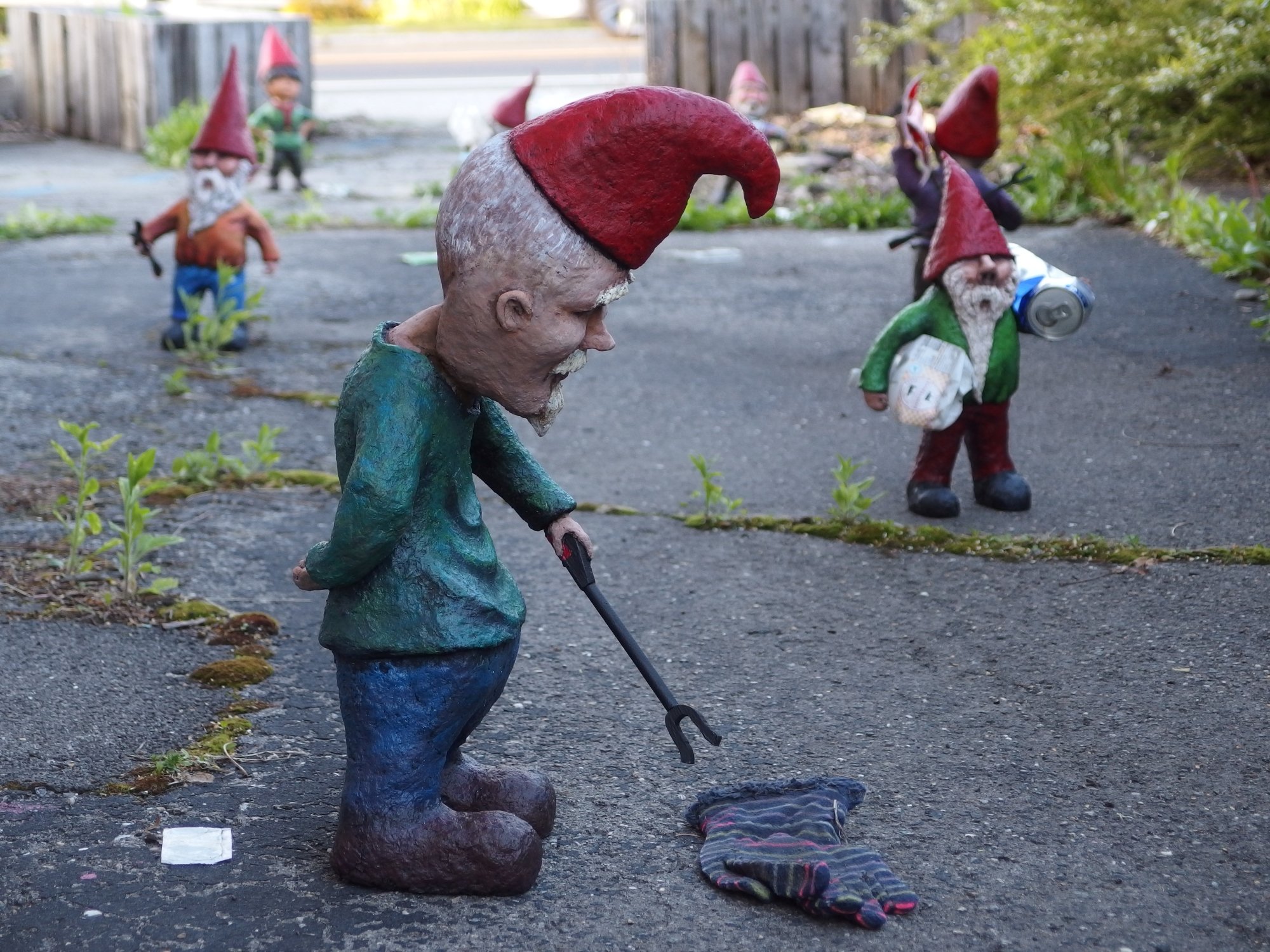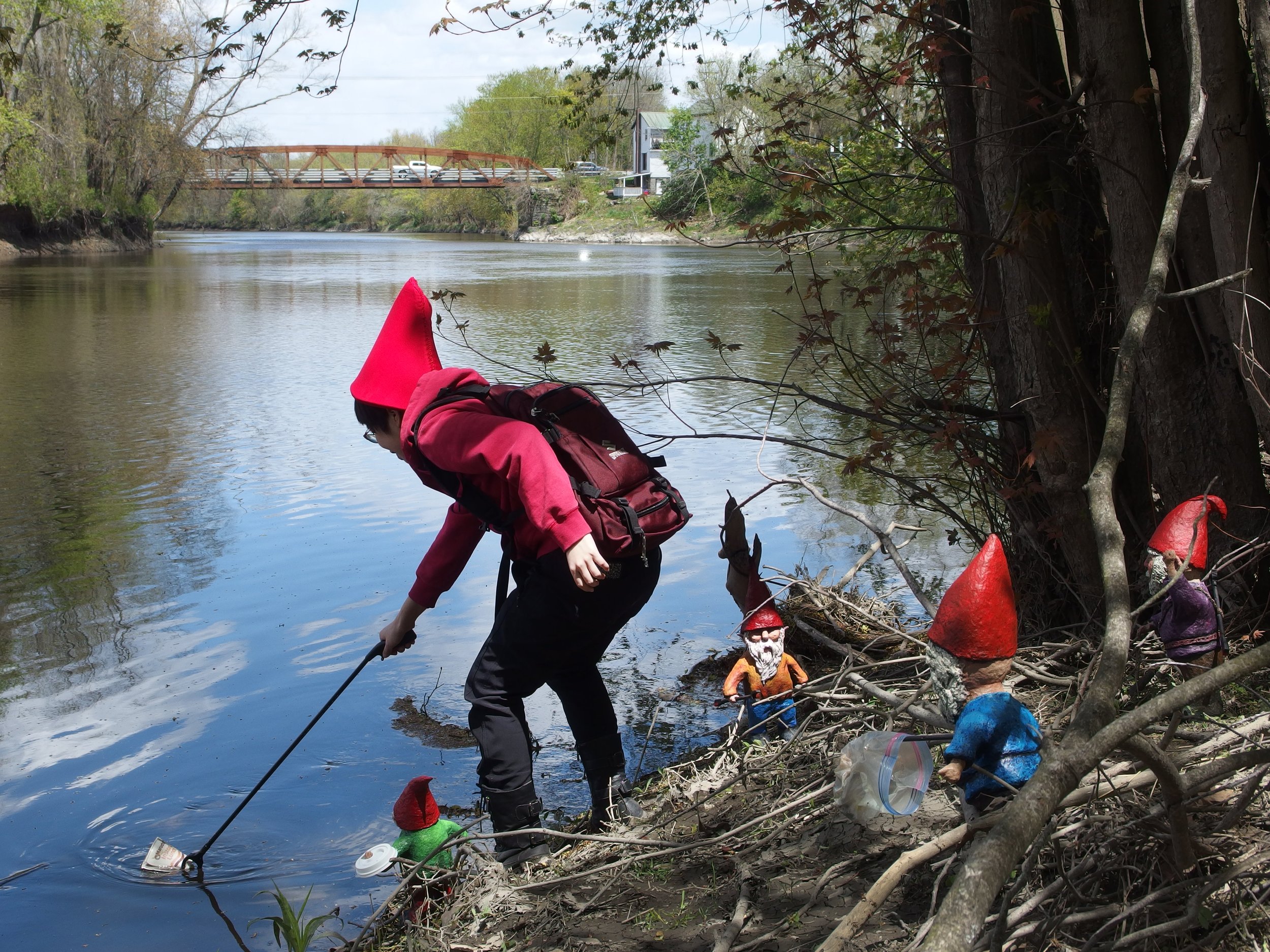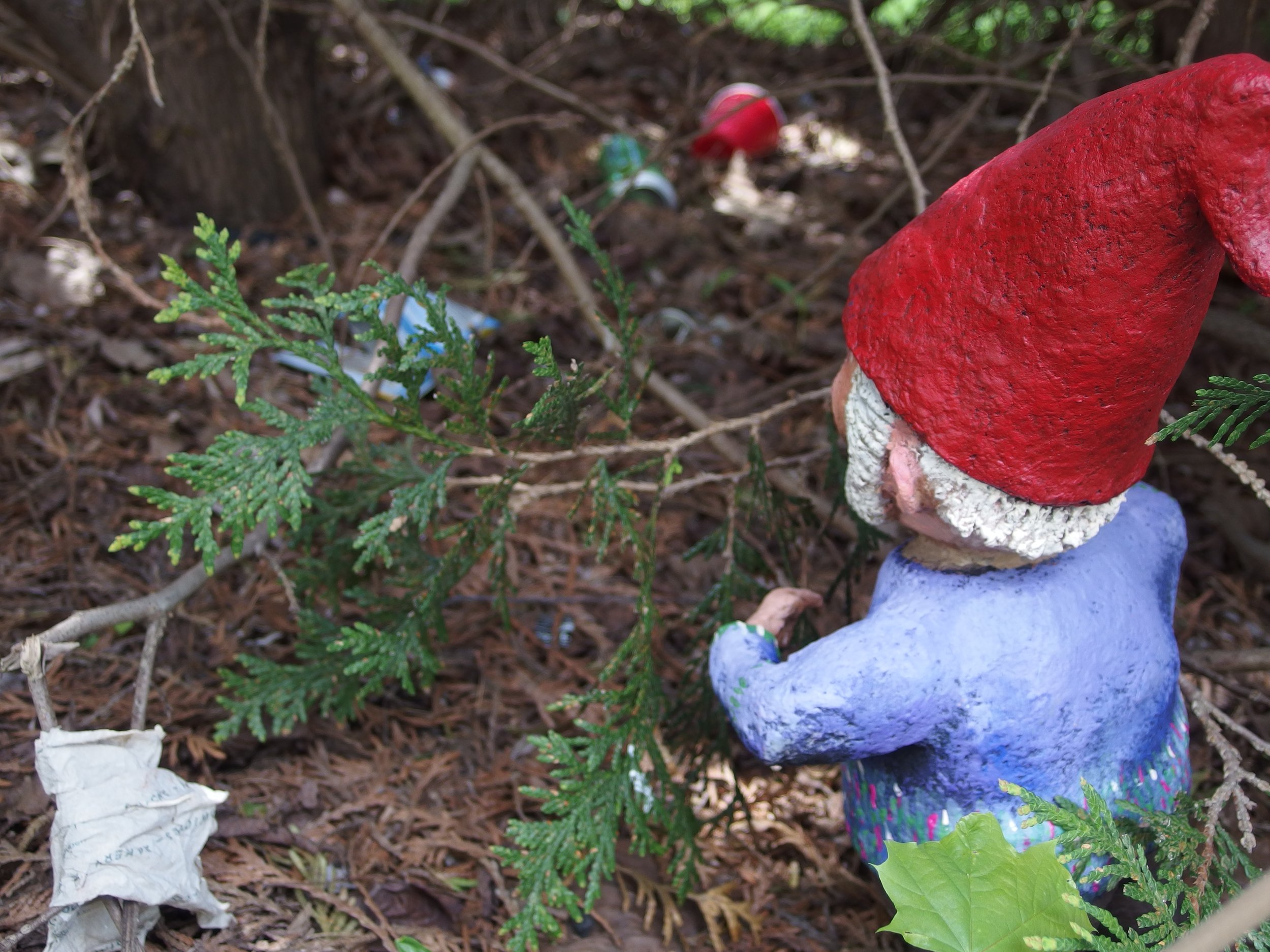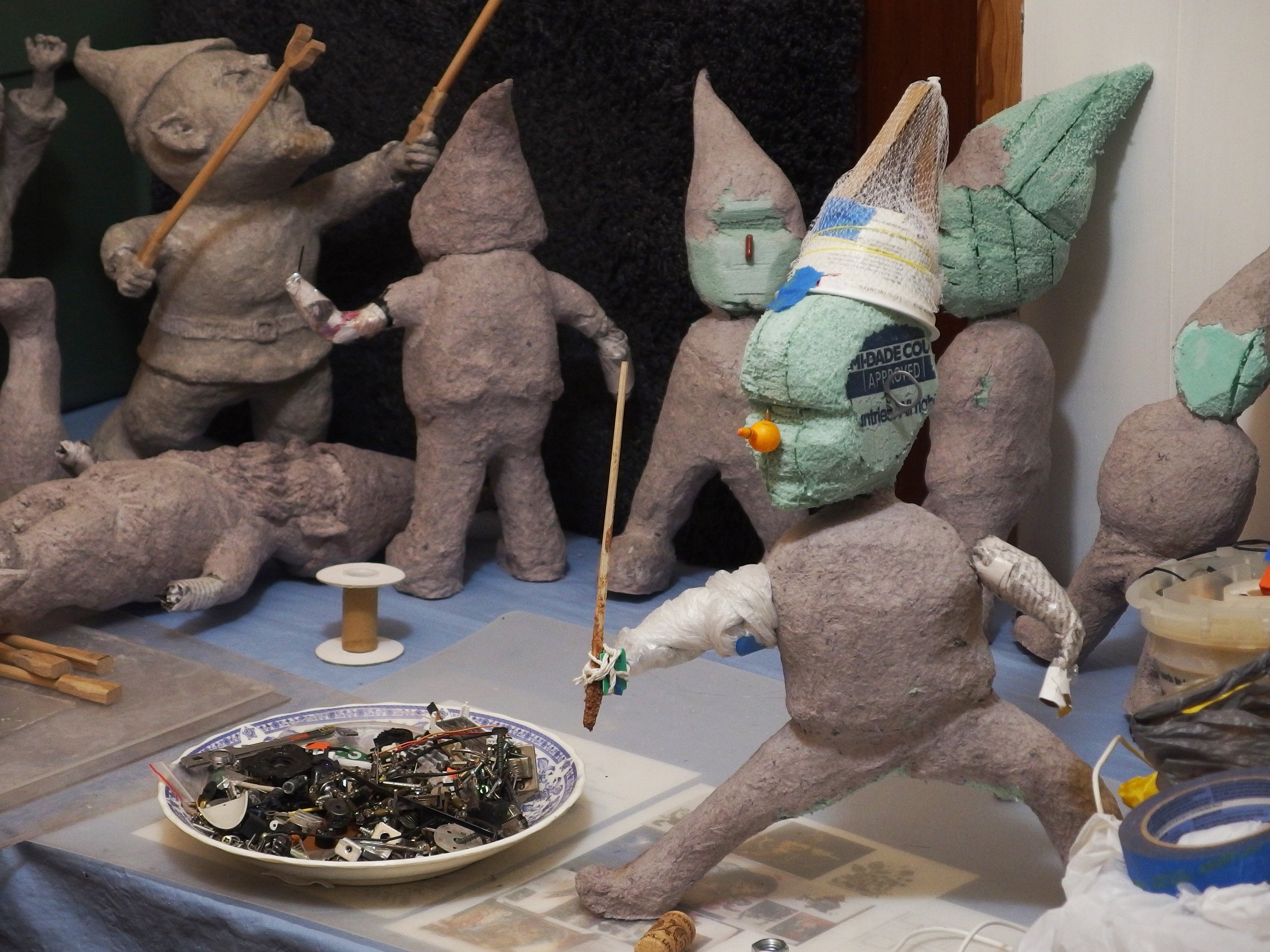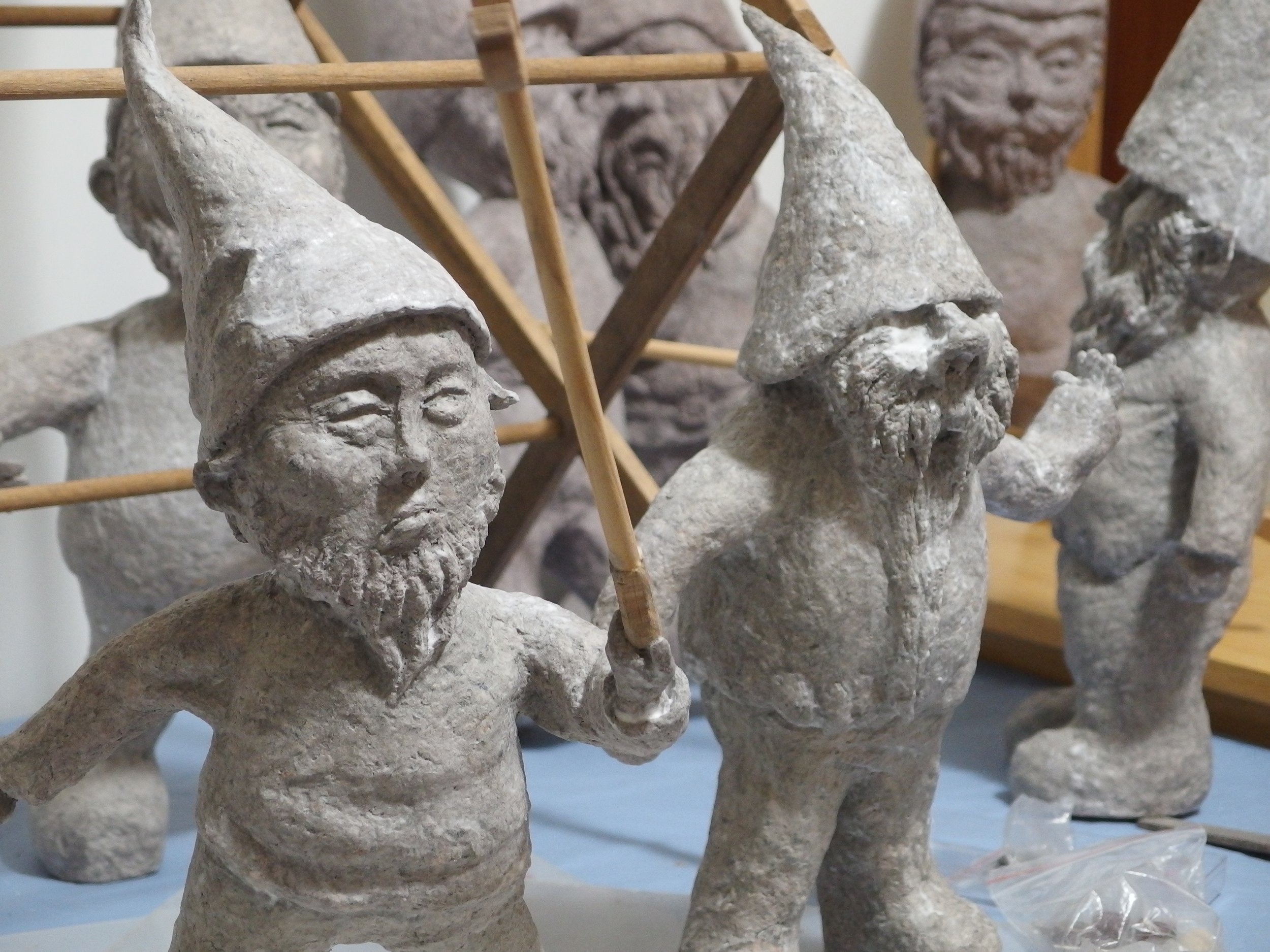Artist Maxine Leu
Congratulations to Maxine Leu for earning her place as a winner in the Boynes Monthly Art Award December 2022!
Who are you?
I’m an interdisciplinary artist, art educator, and environmentalist from Taiwan. My art comes from a naughty, curious and active mind, and I will never forget that my family did not stop or yelling at me when I took down their fan into parts at the age of five. I believe this liberty family education has supported me in pursuing professional training in art schools for my art career. I received my Bachelor of Fine Arts at Tainan University of Technology (TUT), Tainan, Taiwan and my Master of Fine Arts in Sculpture at the State University of New York at New Paltz. To me, Art is a powerful tool for cross-cultural nonverbal communication because art connects to people's profound emotions. Cross-cultural language touches our super-sensory perception and can make people see things from another angle.
“When Gnomes Need to Clean Their Homes”
Sculpture, Photography
By Maxine Leu
What inspired you to utilize sculpture as a medium?
I see mediums and techniques are a way to convey a concept in artwork, so I believe the artist decides what form, which medium, and how to make it according to each different concept of the project. Now a day, many contemporary artists would combine multiple mediums and techniques together. The sculpture is no longer only made or displayed in one or two ways. I like 3D and 4D work as they create a physical relationship in a space with the viewer and respond to the surrounding.
“When Gnomes Need to Clean Their Homes”
Sculpture, Photography
By Maxine Leu
How would you describe your work?
I would describe my work, When Gnomes Need to Clean Their Homes as both funny and critical.
“When Gnomes Need to Clean Their Homes”
Sculpture, Photography
By Maxine Leu
Can you discuss the inspiration and thought process behind "When Gnomes Need to Clean Their Homes"?
The inspiration behind "When Gnomes Need to Clean Their Homes" is based on my experience of being an outsider person in America, the issues of overconsumption and the culture of waste in America. “When Gnomes Need to Clean Their Homes” is a nomadic installation that reminds people of superficial solutions to environmental problems, like solving a problem without stamping out its root cause. I choose "garden gnomes" as a satirical symbol as these mass-produced garden decorations usually only appear in those well-tended gardens as symbols of American excess and suburban lifestyle. Garden gnomes often exist in perfectly manicured lawns and environments that will never need to know about recycling or trash cleanup. Therefore compared to these cheerful garden decorations which people can easily buy in stores, my trash-picking garden gnome does not wear a happy expression and also convey the plot of the various workers in postures. Instead of critiquing people’s behavior of the comparative attitude of people between the street litter and their garden, I intend to switch people on to question the problem and become more introspective. There are two words in the title “Gnome” and “Home” which is a connection to ask “If even the garden gnomes have to clean up their home, what kind of environment do we have?”
“When Gnomes Need to Clean Their Homes”
Sculpture, Photography
By Maxine Leu
Can you walk us through the technical steps of creating "When Gnomes Need to Clean Their Homes"?
The process of my work can be described in four stages: Selection, Meaning-Giving, Transformation, and Presentation. The work I made entirely from upcycled materials found in the trash. I started to clean up the roadsides, rivers, parking lots, and alleys in my community, and then I used these found objects to do the work, and we (me and these gnomes) backed and cleaned our streets again. The waste materials I found include irregular blocks of foams, cardboard packaging, bottle caps, random sizes of plywoods, scrap metals, newspapers, etc. I used these materials as the structure of the work, assembled them together and then shaped them with newspaper pulp and paint.
“When Gnomes Need to Clean Their Homes”
Sculpture, Photography
By Maxine Leu
What do you hope to communicate to an audience with your work?
I wish by seeing our garden friends “When Gnomes Need to Clean Their Homes” clean up our messes, people get the environmental message behind this critical humor.
Can you talk about your biggest learning experience during the process of creating your work?
My series of environmental works are divided into two types. One is focused on community participation like public art, interactive installation and hosting craft workshops with recycled materials. The other type is artwork created from my perspective as an outsider and a social observer. Both types of work require a deeper understanding of the location culture as a language, as the topic of environmental issue are often difficult to start conversations with. No one likes to be criticized on morality in the environmental issue, but art can make people see things from another angle, communicate with people, bring the community together and call attention to the growing waste problem in a lightful way.
“When Gnomes Need to Clean Their Homes”
Sculpture, Photography
By Maxine Leu
Can you discuss your biggest success since starting your artistic journey?
Happiness is the only thing that would increase more and more by sharing with others. Even though I am excited by personal success in big and small awards, but the reaction of the viewer is always unforgettable. There's an interactive project my partner and I created to recall the temperature of connecting with people they loved by sending a physical message, letting people pause from their busy lives through creative activities, and giving people an experience of illustration works to imagine the world. As part of the installation we had, we asked people to contribute their gratitude and care through drawing or writing to people who did not stop working during the Covid pandemic. The project took place at a small local comic store, but the result melts my heart, it's absolutely beautiful and healing. A woman tear-up said her passed son who worked in the medical field would be very happy and honored to see these gratitude messages from community members. We are very glad that our work can provide, connect, resonate with people with a safe place to express themselves, and let them know that no one is isolated in difficult times.
“When Gnomes Need to Clean Their Homes”
Sculpture, Photography
By Maxine Leu
Can you tell something you wish you had known before or when you began your career that would have really helped?
Even though you may be very experienced or confident about something, when creating art, it's like solving a problem of all possibilities. Seeing your work from a child's perspective is to be honest and pure, to be curious, to be open, and to be free, rather than sticking to one aesthetic, one style, or one answer. If a work of art is "finished," the work is also dead.
“When Gnomes Need to Clean Their Homes”
Sculpture, Photography
By Maxine Leu
What projects are you working on currently?
I am currently working on 2023 Eco Arts Week project with The D.R.A.W. (The Dept. of Regional Art Workers), the education program of Midtown Arts District (MAD). This is the second Eco Arts Week started by me, it's a free community event collaborated with local teaching artists to deliver an immersive arts-driven exploration into sustainability, ecology, and upcycling practices through workshops, lectures, and exhibits open to the public and Kingston district students on school break. My goal as a visual artist and a core contributor to a community art space is to communicate with people, bring the community together and call attention to the growing problem of waste.
“When Gnomes Need to Clean Their Homes”
Sculpture, Photography
By Maxine Leu
What is your dream project or piece you hope to accomplish?
I currently developing my work into a series. My team and I are preparing for an art cross-international environmental cooperation, but we have to keep the project details secret as now it's not open to the public. I would love to share this with all of you when the project is published.
As a winner, do you have any advice for artists who want to submit to awards, competitions, residencies, etc.?
Sometimes I jokingly describe the relationship between opportunities and artists as using dating apps, only when both parties find each other and then there's a chemical reaction. Say formally, finding opportunities for yourself is part of an artist's survival skill. By understanding the opportunities, their mission, where it will take place, what they are looking for, who the jurors are, what your reasons are for attending it, etc., analyzing these questions can help you save time and find the right one for you. Understanding that any awards, competitions, or residencies are subjective and you are the only one who knows if you have done your best, so keep an open mind, stick to your perfectionism, and your hard work should take care of itself.
“When Gnomes Need to Clean Their Homes”
Sculpture, Photography
By Maxine Leu
